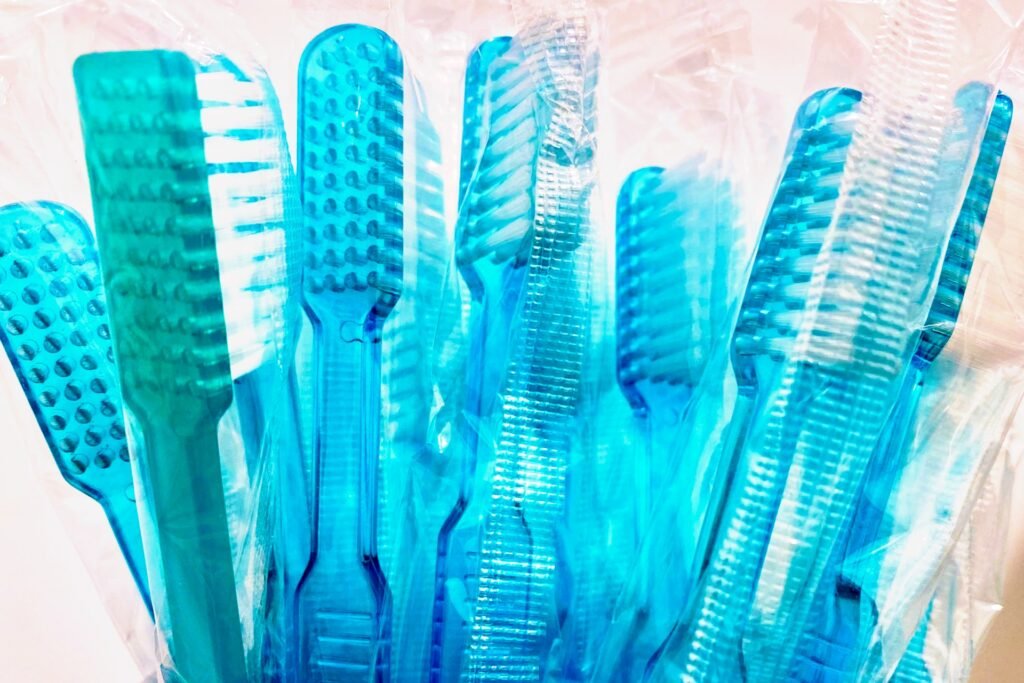dental health – Tips & advice
Dental health is extremely important, not taking care of your teeth and mouth can lead to numerous issues that can make life very difficult. It can be pretty easy to maintain a proper dental health strategy though, it will only take at most 5 minutes every day. Those extra 5 minutes can save you hundreds of dollars in dental appointments which can be incredibly taxing on those with out a good benefits plan.
Tip 1 – Brushing
Brushing is easily the most useful dental health strategy, all you need is a tooth brush and toothpaste. For tooth brushes, we recommend brushing 2-3 times a day for a duration of 30-60 seconds per session. Make sure you brush each tooth and pay special attention to your molars as we often forget about them, even though they do the most work when chewing.
How to pick a good toothbrush:
- Look for soft-medium bristles – Soft bristles will be fine for most people, harder bristles can damage the teeth or gums.
- Get a long handle – You should use a standard size toothbrush, not something smaller like a travel-sized toothbrush. This will give you the reach you need.
- Properly sized toothbrush head – If you’re really picky, make sure the tooth brush head is at least a half-inch wide and an inch tall (don’t bother bringing a measuring tape to the grocery store, you can just eyeball it).
- Go electric – Electric toothbrushes are a much better option than standard brushes. If you’re on a budget, you can usually find them for $15.00 or less, we recommend getting a rechargeable brush though as you will be spending less on batteries.
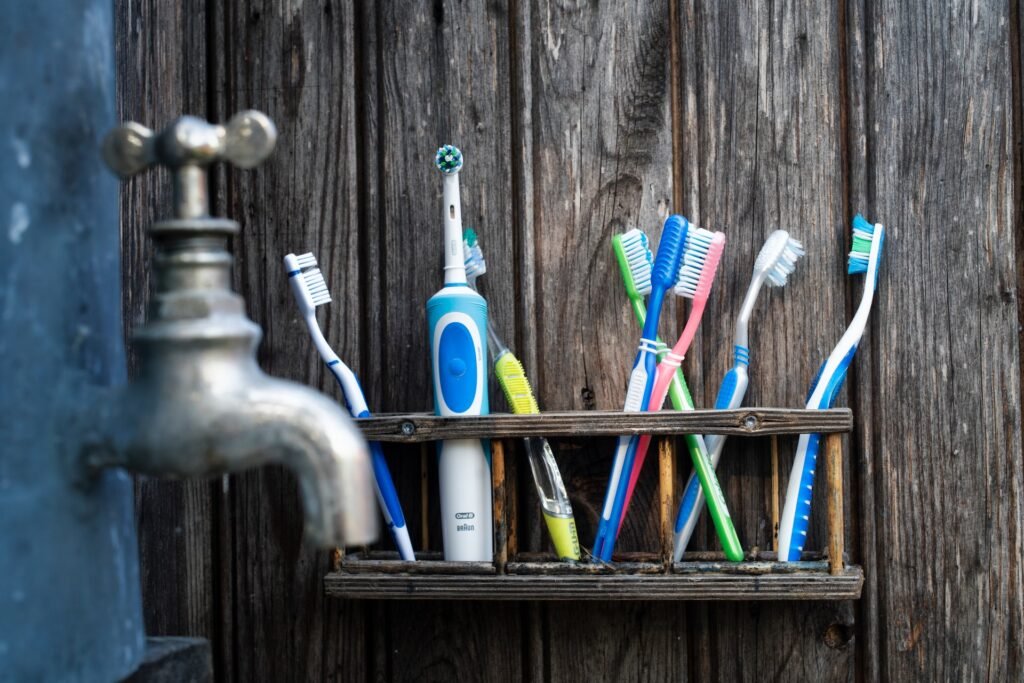
Tip 2 – Flossing
Flossing is just as important as brushing, if not more so, unfortunately, people often forget to floss, or neglect it entirely. If you eat foods like chicken, nuts, or hard candy flossing is important as these foods can become lodged in between your teeth. You might not feel discomfort immediately from these foods, but if a big enough tooth gets stuck your gums may swell up from the irritation. The pieces of food will also have a bigger chance to deposit bacteria or acid where it is hard for a tooth brush to reach.
Here is what you should look for when picking a dental floss:
- Floss thickness – Depending on the gap sizes in your teeth you may need a thinner or thicker floss.
- Floss pick – You may not be able to fit dental floss in your teeth, you might not have a wide enough gap, or if you have limited dexterity in your hands, you can choose a floss pick. There are different options for floss picks so choose the one that works for you.
- Floss flavour – There are a variety of different floss flavours to make flossing more enjoyable, you can also fine non-flavoured floss as well if you prefer no flavour.
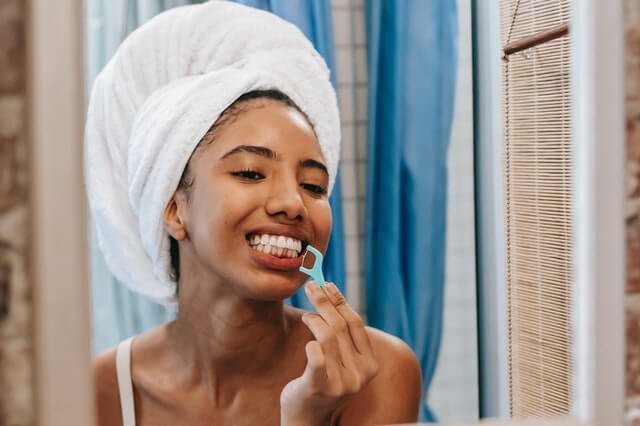
Tip 3 – Mouthwash
Mouthwash is possibly the most underrated strategy on this list. Many people don’t have mouthwash in their bathroom arsenal. If you get mouthwash make sure it has fluoride in it. Using mouthwash can help kill more bacteria in your teeth and will help get at those hard-to-reach places, just make sure you give a few good swishes for about 10 seconds.
How to pick your mouthwash:
- Flouride – Mouthwashes with fluoride will do a better job at killing bacteria and preventing gum disease.
- Alcohol content – Pick an amount suitable for you. If you have children, or if anyone using it has any history with drinking problems no alcohol would be best.
- Flavour – Pick a flavour you enjoy, it’s best to use mouthwash at the end of the routine so you should pick a flavour that you like.
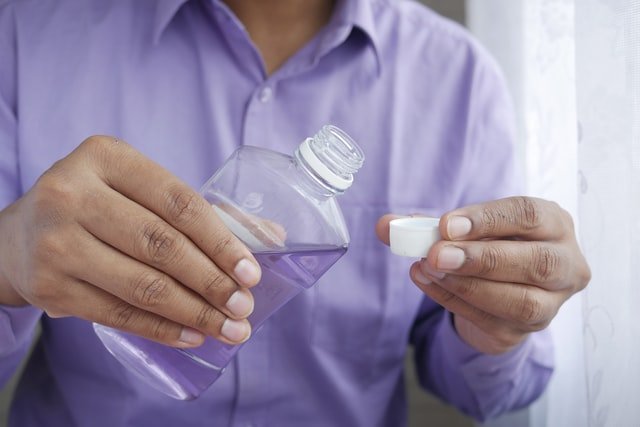
Tip 4 – Be aware!
Awareness is free! It’s also one of the best methods of prevention. What we mean we say, “be aware” is mainly to keep track of your daily oral health routine, also to minimize the intake of harmful foods on a regular basis. You can still have these foods, just be aware that when you have things like candy, or pop, you take extra care of your teeth to prevent disease.
Generally, we recommend patients get a checkup 2 times a year, every 6 months.
Stains are never good, but if you partake in activities like drinking coffee, smoking, or chewing tobacco, you are almost definitely going to see more stains on your teeth than average. This doesn’t necessarily mean they are damaged, but it could be an indicator things are going to get worse.
Yes! You can get take-home whitening kits, or get them professionally treated by a dentist. Using “teeth whitening” toothpaste and washes can also help over time.

